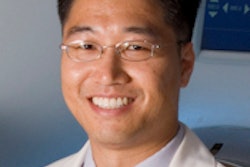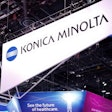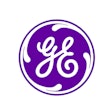Dear AuntMinnie Member,
Radiologists are being told they need to establish personal connections with patients in order to survive the changes making over healthcare. This week, we offer two ways to do this.
First up, Dr. Garry Choy of Massachusetts General Hospital (MGH) described how MGH set up a pilot service that provides consultations to patients on their imaging results. The idea for the service came almost by accident, after an MGH radiologist had a chance encounter with a patient in a hallway, and brought her into the reading room to see her images.
So far, about two dozen patients have been given personal consultations lasting from 15 to 30 minutes after they see their primary care physician. The consultations are offered for free, but a reimbursement model could be built into the system if it becomes permanent.
Would a patient consultation service work at your imaging facility? Read the article by clicking here and let us know by visiting our Forums.
In a related story, learn how radiologists from NYU Langone Medical Center took on the challenge of educating the public about cancer screening exams. Hoping to cut through the noise on the effectiveness of screening, radiologists held a series of one-hour educational sessions in the community designed to provide accurate information about screening. Find out how people reacted to the program by clicking here.
Radiology in Turkey
Radiology is an up-and-coming medical specialty in Turkey, according to a new article we're featuring this week in our AuntMinnie Middle East special section.
Contributing writer Frances Rylands-Monk profiles the state of Turkish radiology, discussing how recent changes in the country's healthcare system have benefited patients but present challenges to radiologists, such as an increased workload, lower reimbursement, and fewer residency spots.
Another positive development is increased investment in healthcare infrastructure, which should benefit radiology in terms of more spending on new CT and MRI scanners, for example. But keeping talented radiologists in the country is always a challenge. Learn more about radiology in this intriguing country by clicking here, or visit AuntMinnie Middle East at me.auntminnie.com.
An Mo-99 solution?
Finally, visit our Molecular Imaging Digital Community for a new article on a potential solution to the molybdenum-99 (Mo-99) situation, in which nuclear medicine physicians are plagued with sporadic shortages of this key radioisotope.
A start-up company called Northwest Medical Isotopes is moving ahead with plans to develop a U.S. source for Mo-99, the precursor to technetium-99m, one of the most commonly used isotopes for medical applications. The plan would enable low-power research reactors at universities to produce Mo-99, which would reduce U.S. reliance on the single Canadian nuclear reactor that is currently in operation -- and scheduled to be taken out of service permanently in 2016.
Click here for our article on the company by Features Editor Wayne Forrest, or visit the community at molecular.auntminnie.com.


















